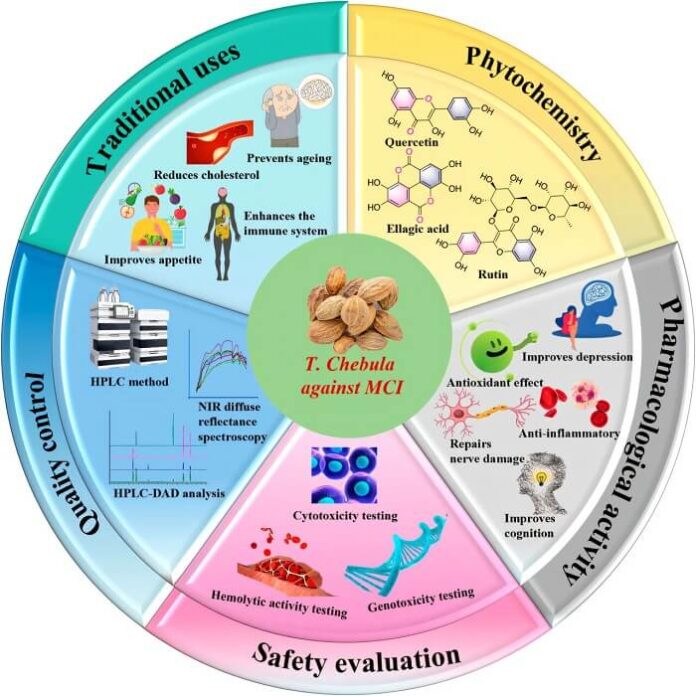Within Tibetan medicine, Terminalia chebula (T. chebula) is renowned for its wide range of therapeutic benefits. Traditionally used for its antibacterial, antiviral, antioxidant, anti-inflammatory, glycemic, and antitumor properties, it has been prescribed for various ailments, as noted in both classic texts and modern research.
However, its potential as a treatment for mild cognitive impairment (MCI) has not been thoroughly explored. To address this gap, a research team conducted a comprehensive review of literature from 1990–2024 to assess T. chebula’s suitability for further investigation in MCI treatment.
This research was carried out by scholars from several institutions affiliated with the University of Traditional Chinese Medicine in Chengdu, China.
MCI is considered a transitional stage between normal aging and dementia, with a risk of progression to Alzheimer’s disease, the most common form of dementia. The review also highlights that residing in high-altitude, low-oxygen environments like Tibet can exacerbate cognitive dysfunction and brain changes.
As the researchers explore the potential of T. chebula in MCI treatment, they build upon its established use in Tibetan medicine, where MCI is viewed as part of Jie Xie Syndrome, related to disturbances in “Long” (which represents circulation, energy, and thoughts). Tibetan medicine aims to regulate “Long” and restore balance in the body by tonifying Yang to address age-related disorders.
T. chebula, derived from the dried fruit of a tree in the Combretaceae family, has been traditionally used to treat conditions ranging from respiratory issues to high cholesterol, digestive disorders, and immunity enhancement.
The review examines T. chebula’s chemical makeup, consisting of 171 components, and its potential application in treating MCI. The herb’s neuroprotective effects, primarily attributed to its anti-inflammatory and antioxidant properties, may alleviate MCI symptoms by shielding neurons from oxidative stress, reducing inflammation, supporting synaptic plasticity, and enhancing cerebral blood flow. Additionally, it could benefit sleep quality, an important aspect in MCI management, though further research is needed to clarify this effect.
Despite its promise, the researchers emphasize the need for more studies to refine the understanding of T. chebula’s active compounds and establish quality standards. They also highlight existing challenges in MCI treatment, including the absence of diagnostic and individualized treatment protocols, insufficient psychological and social support, and the need for long-term management strategies.
As per the medicalxpress, the review concludes optimistically, suggesting that future research into Tibetan medicine, and particularly T. chebula, may offer new avenues for treating MCI and improving patients’ quality of life.























